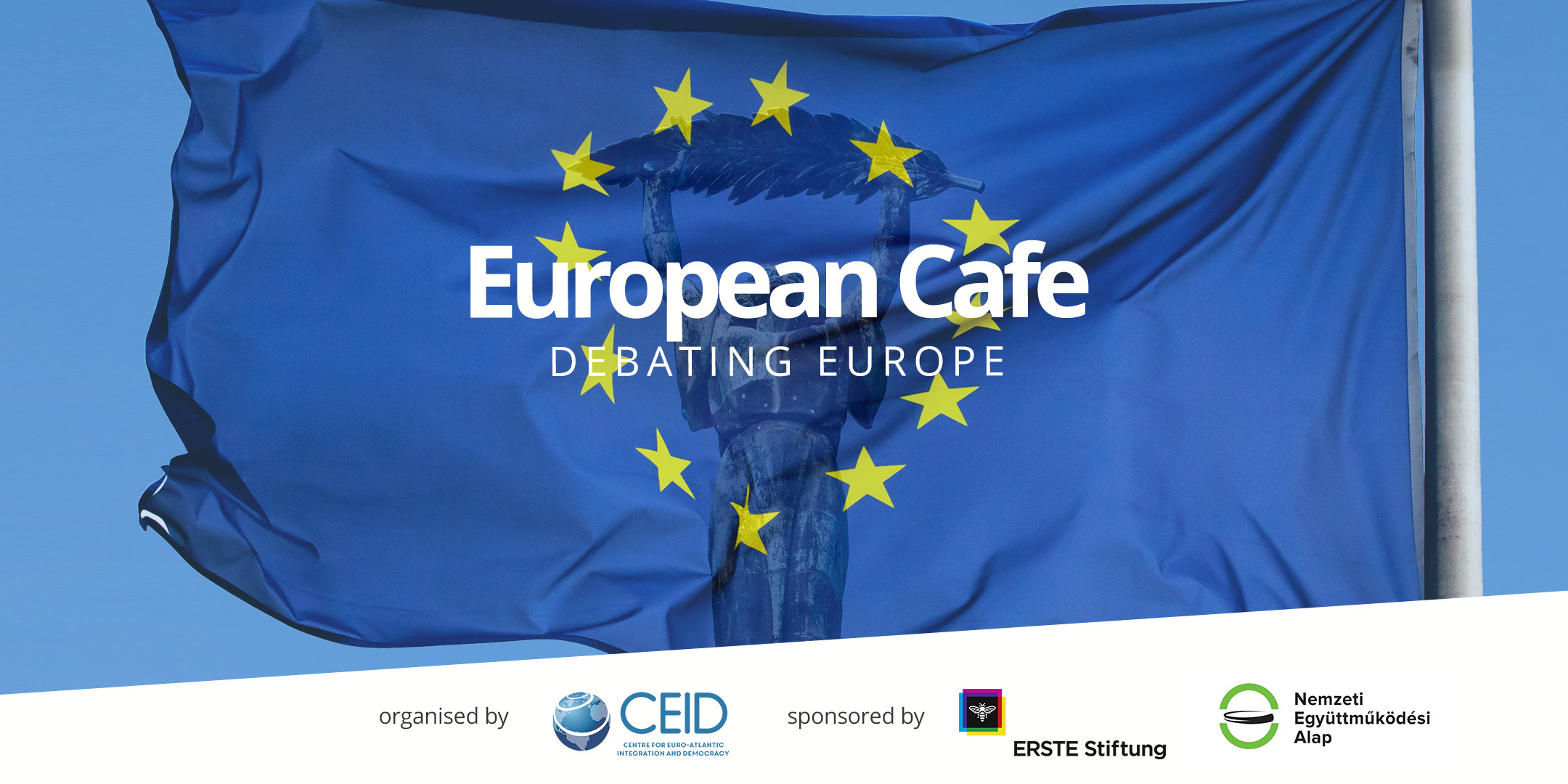
13 Jun European Café: Fight for your money: Winners & loosers of the next EU Budget (Pre-study for the event)
Towards a compromise: political debates related to the EU budget
Dániel Bartha | Download | 13.06.2018
European Commissioner for Budget, Günther Oettinger presented the overall figures and the basic structure for the 2021-2027 Multiannual Financial Framework (MFF) on May 2nd. Commission President Jean-Claude Juncker described the plan as “an ambitious but balanced budget, one that is fair for all.” The self-confidence of the Commission went quite far when leading executives stressed their aspiration to conclude negotiations and approve the budget before the upcoming European Parliamentary elections. The political stake is high. Power dynamics within the EU are rapidly changing. While the traditionally strong European People’s Party (EPP) and the Progressive Alliance of Socialists and Democrats (S&D) are weakening, liberals and critical/eurosceptic movements are strengthening, not to mention the unpredictable effect of a possible new pro-European platform created by Emmanuel Macron circumventing traditional party lines. On the other hand, restarting negotiations under a new Commission with a structurally different Parliament with newly established coalitions would be a lengthy and strenuoustask. The time remaining before the campaigning period is insufficient to clear the significant differences amongst member states. The Commission did an enormous job with the current draft to the MFF and simultaneously handling the impact of Brexit, the political and economic crises of the Southern member states and the consequences of the migration crises. It still has many issues to handle including: preparing the EU for the changing structures of employment, new challenges in competitiveness and the environment. Given the volume of issues and the sensitivity of each one, it is almost impossible to achieve a document of consensus in such a short amount of time.
Numbers and the main camps
The UK’s departure will create a gap of €11 billion, and many believe that the Commission’s proposal to raise contributions to the 1,11% of GNI is by far not ambitious enough to fill this substantial gap. Net contributors are naturally campaigning for a smaller budget for the smaller EU. European Parliament President Antonio Tajani reminded the Commission that the majority of the EP parties was asking for a 1,3 % GNI level budget. Not only the Parliament, but the majority of member states are backing his plea. In the last few months, the Visegrad Countries 2 were supporting the increase of national contribution in a number of communiques. Thisraise is critical for them since they understand that if the EU funds are short the money received from Brussels will be severely decreased. Meanwhile, the proposed budget increase could significantly reduce their nominal loss. The harshest opponents are the smaller net payers, many of them already unsatisfied with the present budget structure. Following the presentation of the budget, the fiercest critics were Denmark, Netherlands and Austria. This could be potentially good news. The silence of the German government and the support of the French are the two most important keys for striking a deal. Germany understands the need for greater contribution if they want to keep the European project alive, but selling bigger spending to the German public is extremely hard for the politically wounded CDU/CSU- SPD coalition. Another significant issue is the future budget of the Common Agricultural and Cohesion Policy. As these two budget categories will suffer the most significant cuts, political lobbying from the largest beneficiaries was expected. Interestingly, the traditional recipient countries of Central Europe are mainly focusing their criticism on the proposed changes to the Agricultural policy. The V4 together with Romania already formed a coalition, but France’s position will be crucial when drafting the final deal. Political instability throughout the EU does not help smooth out the budget process. Financial instability and continued confrontation over migration severally altered the political map since the last 2014-2020 MFF negotiations. While some countries in Central Europe, such as the Czech Republic or Slovakia showed a higher level of political instability, Italy and Spain remain in immediate crisis. Finding a unanimous deal seems to be far away, but the current equation will be further complicated in the upcoming days when the Commission will publish its recommendations for the legislative changes. These will possibly include the controversial political conditionality clause. According to the plans, a so-called „rule of law” conditionality will be linked to the allocation of cohesion funds. The Commission argues that the goal is to protect investment and European taxpayers’ money and therefore it needs to guarantee that courts across the bloc are independent of government pressure. Details are still being worked out, and the Commission is preparing several options, but it is clear this new clause is tailored for Budapest and Warsaw. Therefore, it will be interesting to see what the first reactions from these two governments will be to the proposed changes. One thing is certain, the mission of Juncker to strike a deal before May 2019 seems almost impossible. But circumstances may even become more difficult later.
© CEID 2018

